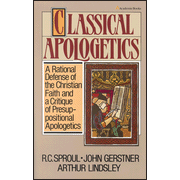Archive
Do Christians and Muslims Worship the Same God?
By Albert Mohler, Jr.
A statement made by a professor at a leading evangelical college has become a flashpoint in a controversy that really matters. In explaining why she intended to wear a traditional Muslim hijab over the holiday season in order to symbolize solidarity with her Muslim neighbors, the professor asserted that Christians and Muslims worship the same God.
Is this true?
The answer to that question depends upon a distinctly Christian and clearly biblical answer to yet another question: Can anyone truly worship the Father while rejecting the Son?
The Christian’s answer to that question must follow the example of Christ. Jesus himself settled the question when he responded to Jewish leaders who confronted him after he had said “I am the light of the world.” When they denied him, Jesus said, “If you knew me, you would know my Father also” (John 8:19). Later in that same chapter, Jesus used some of the strongest language of his earthly ministry in stating clearly that to deny him is to deny the Father.
Christians and Muslims do not worship the same God. Christians worship the triune God, Father, Son, and Holy Spirit, and no other god. We know the Father through the Son, and it is solely through Christ’s atonement for sin that salvation has come. Salvation comes to those who confess with their lips that Jesus Christ is Lord and believe in their hearts that God has raised him from the dead (Romans 10:9). The New Testament leaves no margin for misunderstanding. To deny the Son is to deny the Father.
Read the entire article here.
There is a fundamental harmony between Judaism and Christianity
 That there must be a fundamental harmony between Judaism and Christianity appears in the fact that the same God is the Author of both, and is unchanging in His perfections and the principles of His government. The former was indeed addressed more to the outward man, was transacted under visible forms and relations, and had respect primarily to a worldly sanctuary and earthly inheritance; nevertheless, they were all of them a “shadow of heavenly things” (Hebrews 8:5; 10:1).
That there must be a fundamental harmony between Judaism and Christianity appears in the fact that the same God is the Author of both, and is unchanging in His perfections and the principles of His government. The former was indeed addressed more to the outward man, was transacted under visible forms and relations, and had respect primarily to a worldly sanctuary and earthly inheritance; nevertheless, they were all of them a “shadow of heavenly things” (Hebrews 8:5; 10:1).
“In the New Testament we have a higher, yet very closely related, exhibition of truth and duty than in the Old, which involves both the agreements and differences of the two covenants. The agreements lie deeper and concern the more essential elements of the two economies; the differences are of a more circumstantial and formal nature” (Fairbairn).
Personally, we would say that the principal variations appear in that in the one we have promise and prediction, in the other performance and fulfillment: first the types and shadows (the “blade”), then the reality and substance or “full corn in the ear.” The Christian dispensation excels the Mosaic in a fuller and clearer manifestation of God’s perfections (1 John 2:8), in a more abundant effusion of the Spirit (John 7:39; Acts 2:3), in its wider extent (Matthew 28:19, 20), and in a larger measure of liberty (Romans 8:15; Galatians 4:2-7).
Arthur W. Pink-Interpretation of the Scriptures
The New Testament is a continuation of and a complement to the Old
 In many respects the New Testament is a continuation of and a complement to the Old. The difference between the old and new covenants referred to in Hebrews is a relative and not an absolute one. The contrast is not really between two opposites, but rather between a gradation from the lower to the higher plane—the one preparing for the other. While some have erred in too much Judaizing Christianity, others have entertained far too carnal a conception of Judaism, failing to perceive the spiritual elements in it, and that under it God was then as truly administering the blessings of the everlasting covenant unto those whom He had chosen in Christ as He is now, yea, that He had done so from Abel onwards. Rightly, then, did Calvin rebuke the madness of our modern dispensationalists when reproving those of their forerunners who appeared in his day, saying, “Now what would be more absurd than that Abraham should be the father of all the faithful, and not possess even the lowest place among them? But he cannot be excluded from the number, even from the most honorable station, without the destruction of the Church.”
In many respects the New Testament is a continuation of and a complement to the Old. The difference between the old and new covenants referred to in Hebrews is a relative and not an absolute one. The contrast is not really between two opposites, but rather between a gradation from the lower to the higher plane—the one preparing for the other. While some have erred in too much Judaizing Christianity, others have entertained far too carnal a conception of Judaism, failing to perceive the spiritual elements in it, and that under it God was then as truly administering the blessings of the everlasting covenant unto those whom He had chosen in Christ as He is now, yea, that He had done so from Abel onwards. Rightly, then, did Calvin rebuke the madness of our modern dispensationalists when reproving those of their forerunners who appeared in his day, saying, “Now what would be more absurd than that Abraham should be the father of all the faithful, and not possess even the lowest place among them? But he cannot be excluded from the number, even from the most honorable station, without the destruction of the Church.”
Arthur W. Pink-Interpretation of the Scriptures












Recent Comments